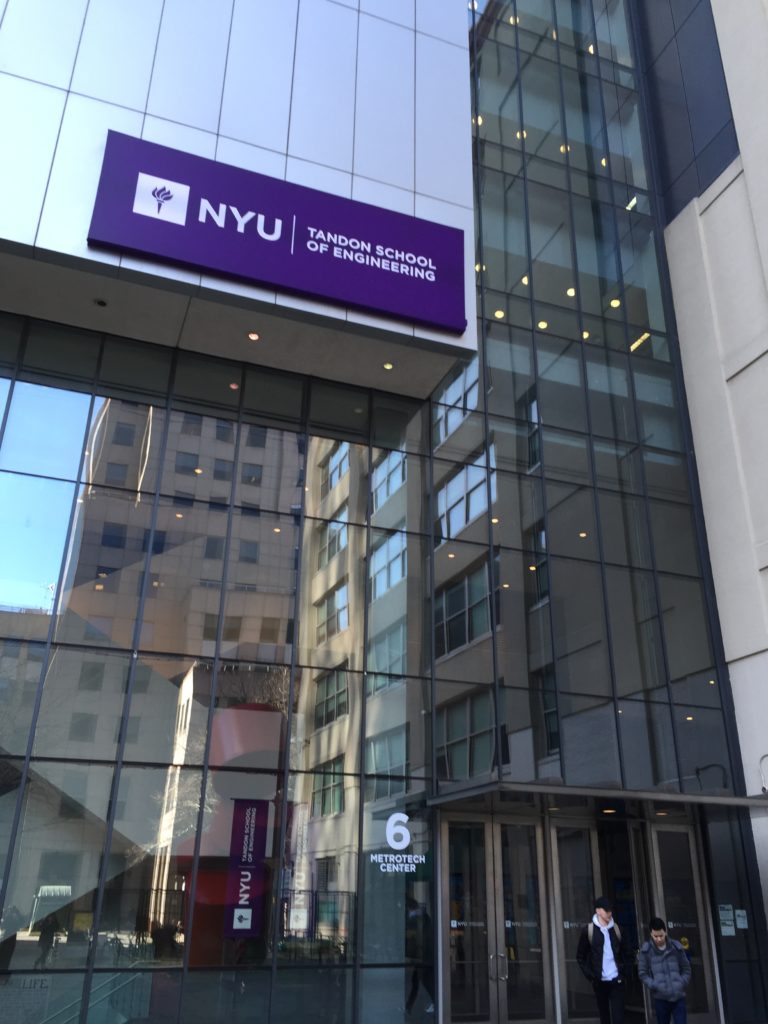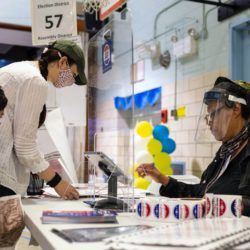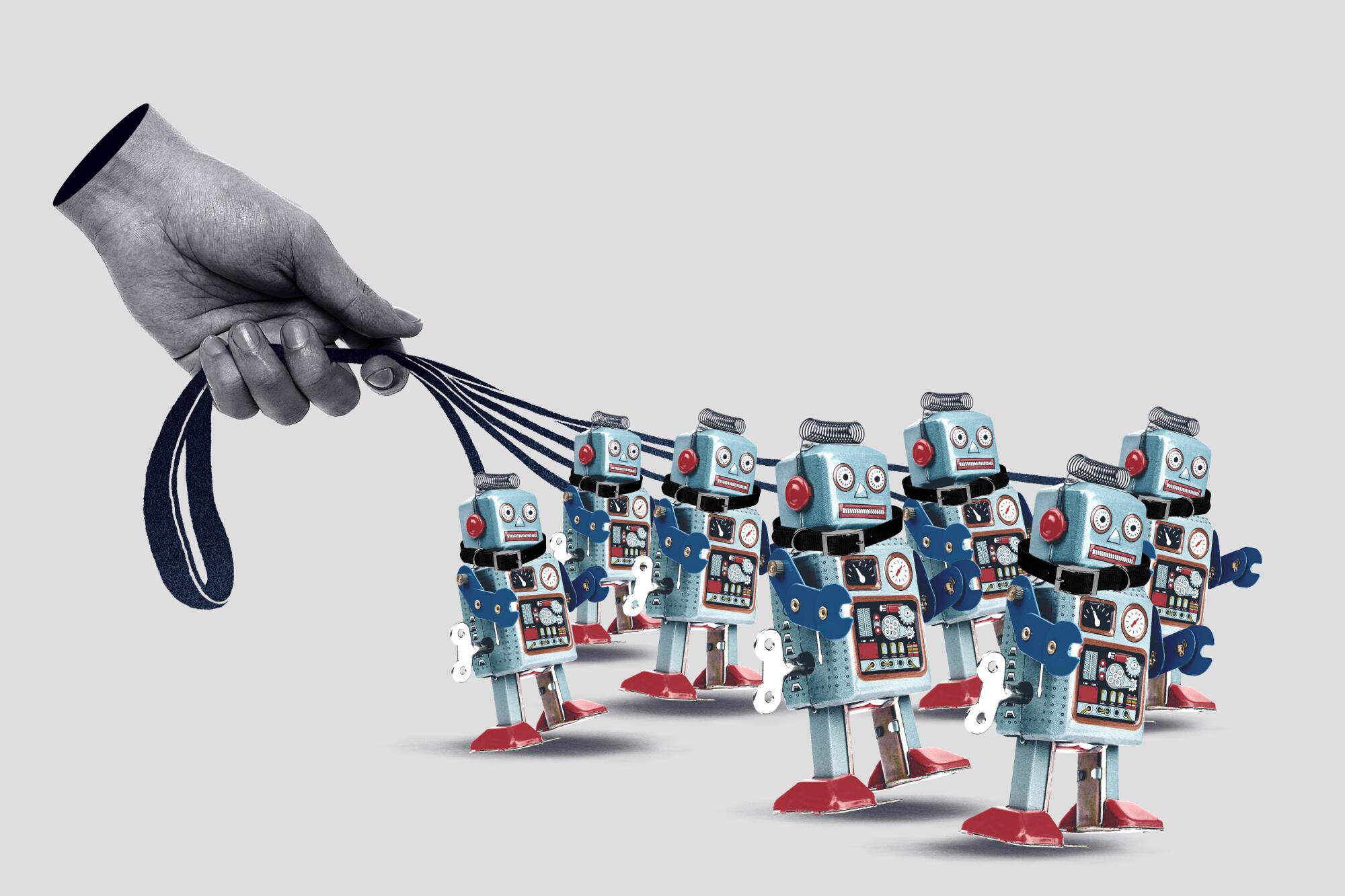[ad_1]
Example of detection output using a NYC traffic camera. The data generated by these cameras was used for a traffic congestion study by NYU Tandon. Photo courtesy of NYU Tandon School of Engineering
NYU’s Tandon School of Engineering at Brooklyn Commons (formerly MetroTech) has been using engineering and computer models to solve some of the most vexing problems facing American society.
In particular, the school recently tackled the problems of traffic congestion, state laws regulating firearms, and using artificial intelligence (AI) to generate computer code.
Researchers at NYU’s Connected Cities for Smart Mobility used a model using existing Department of Transportation camera feeds from more than 700 locations and applied a “deep-learning, object detection method that enabled researchers to calculate pedestrian and traffic densities without ever needing to go out onto the streets.”
The system developed by the NYU team can help inform decision-makers’ understanding of a wide range of questions ranging from crisis management responses, such as social distancing behaviors, to traffic congestion, according to NYU Tandon.
As far as guns are concerned, the NYU Tandon study focuses on state firearm legislation. “To date, little is known about why some states pass more restrictive or permissive firearm laws than others,” says a statement by the researchers.
The researchers employed what are known as exponential-family random graph models, a class of statistical network models, to identify factors that increase or decrease the likelihood of states adopting permissive or restrictive firearms legislation.
“Results show that more progressive state governments are associated with a higher chance of enacting restrictive firearm laws, and a lower chance of enacting permissive ones. Conservative state governments are associated with the analogous reversed association,” says the NYU Tandon study.

While this is hardly news, the study also found out that the presence of a particular state having a gun-related law increased the likelihood of a neighboring state adopting a similar law. In some cases, say the authors, legislators look to states similar to their own for effective solutions to an existing problem.
In addition, according to NYU Tandon, states where the governor and the majority of the state legislature are of the same political party are more apt to adopt gun-related legislation, whether pro or con.
In the matter of AI-generated code, researchers from the NYU Center for Cybersecurity, affiliated with Tandon, explored Copilot, a new tool for coders from GitHub, a Microsoft subsidiary.
The technology, according to NYU research assistant professor Hammond Pearce, is capable of generating a great deal of code quickly. “It was only after a few days that [Hammond began to notice something — the automated code was introducing bugs and potential security flaws,” according to the school.
What he and fellow researchers found, according to NYU Tandon, was that of the 1,692 programs they generated for Copilot, 40 percent were compromised in some way.
“Sometimes it would spit out code from the 90s or early 2000s, ancient by the standards of a young field, and no longer used because of known security threats,” according to NYU Tandon. “These errors are all potential infiltration points for hackers and bad actors, potentially exposing things like passwords and other vital data.”
While NYU Tandon’s statement doesn’t specify whether there was any response from Microsoft, it does say that the researchers continued to use Copilot, despite the flaws. Brendan Dolan-Gavitt, assistant professor of computer science and engineering, said, “I forgot how painful it was to write everything by hand.”
[ad_2]
Source link











